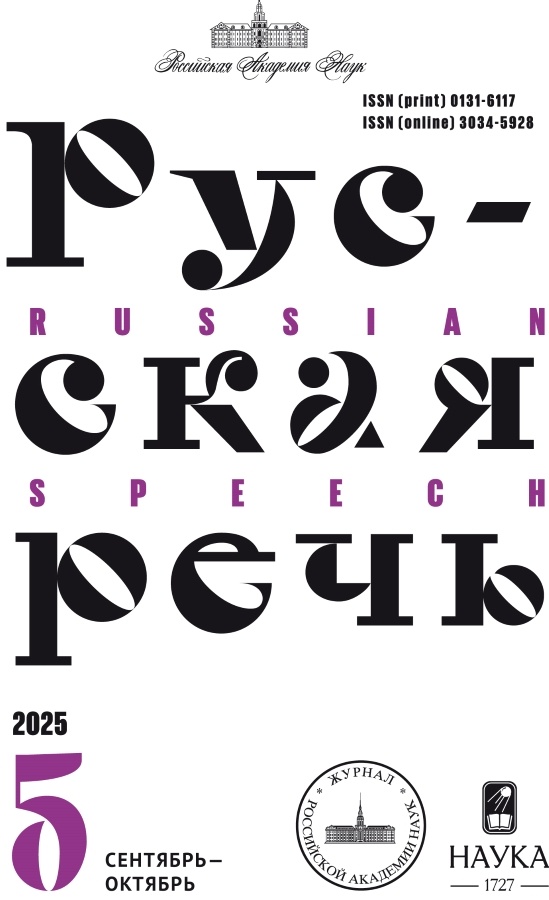Метеоним дождь в традиционной речевой культуре Русского Севера
- Авторы: Нефедова Е.А.1
-
Учреждения:
- Московский государственный университет им. М. В. Ломоносова
- Выпуск: № 5 (2025)
- Страницы: 30-42
- Раздел: Проблемы современного русского языка
- URL: https://transsyst.ru/0131-6117/article/view/692801
- DOI: https://doi.org/10.31857/S0131611725050038
- ID: 692801
Полный текст
Аннотация
В статье на основе анализа семантики и сочетаемости слова дождь и его дериватов определены объем и содержание этого универсального понятия, характерные для носителей традиционной народной культуры Русского Севера. Атрибутивная сочетаемость связана в основном с констатацией объективных свойств дождя, а также выражает их общую оценку — дождь ту́чной, мороково́й, обложно́й, заливно́й, моросно́й, грозово́й, громово́й, тороково́й. Предикаты дождя представляют его в качестве находящегося в движении, активно действующего субъекта. Его проявления на разных этапах представлены как падение сверху, полет, плавание, ходьба, бег, скачки, накатывание. Дождь может попугать нападением — постраща́ть, проявлять агрессию — лупи́ть, стега́ть, хлеста́ть, руби́ть, жать, броса́ться на кого-н. Выпадение дождя как процесс, независимый от чьей-либо воли, описывается его предикатами как слабо текущий — запобры́згивало, забрызга́ло, заси́тушило. Глагольные метафоры представляют дождь как живое существо, к которому можно обратиться с просьбой прийти. Дождь может остаться глухим к просьбе, а может появиться как нежданный гость. В говорах сохраняются приметы и поверья, связанные с дождем. Анализ сочетаемостных свойств обозначений атмосферных осадков позволяет судить об образе ДОЖДЯ, каким он видится носителям традиционной народной культуры Русского Севера. Язык отражает и реалистичное, и мифологическое восприятие дождливой погоды, передает мироощущения человека, находящегося в эпицентре природных событий, познающего их и старающегося использовать для своих практических нужд.
Ключевые слова
Об авторах
Е. А. Нефедова
Московский государственный университет им. М. В. Ломоносова
Email: eanefedova@gmail.com
Москва
Список литературы
- Гецова О. Г. (ред.). Архангельский областной словарь. Вып. 11. М.: Наука, 2001. 479 с.
- Гольдин В. Е. Доминанты традиционной культуры сельского общения // Аванесовский сборник. М.: Наука, 2002. С. 58–64.
- Толстой Н. И. (ред.). Славянские древности. Этнолингвистический словарь. Т. 2. М.: Международные отношения, 1999. 680 с.
- Фасмер М. Этимологический словарь. Т. I. М.: Прогресс, 1964. 562 с.; Т. IV. М.: Прогресс, 1973. 852 с.











